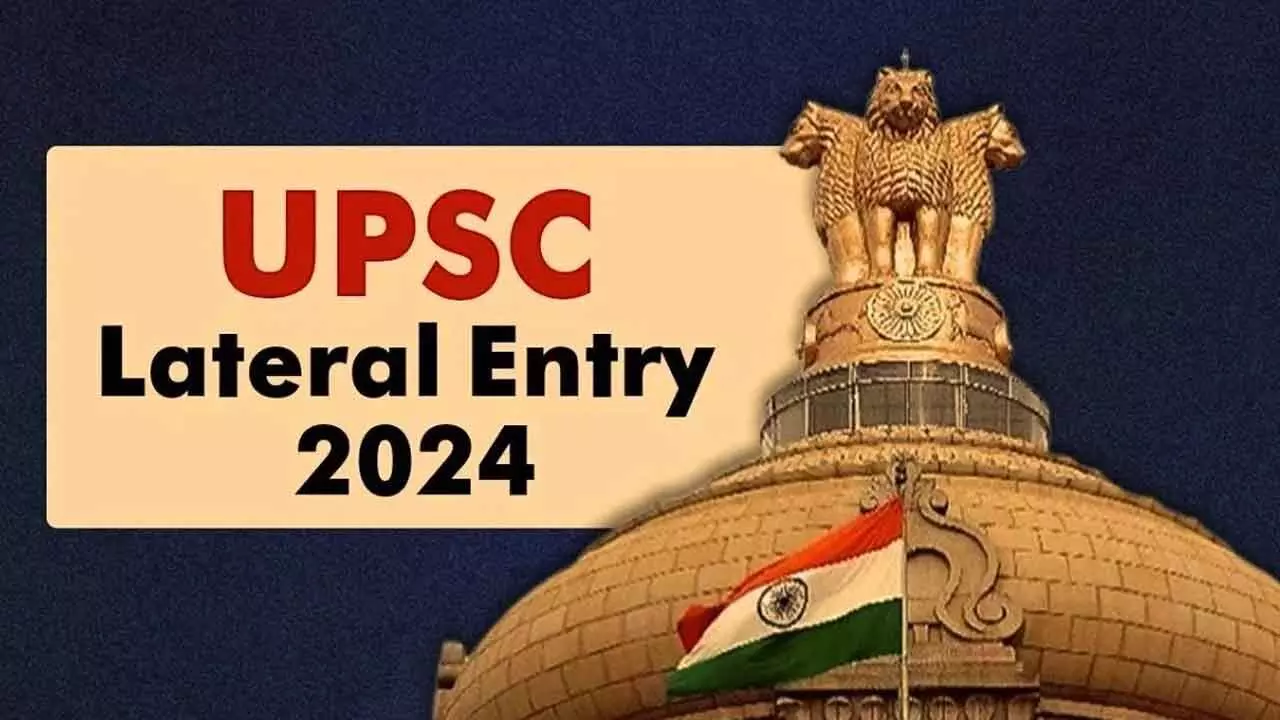Centre’s move on lateral entry exposes lack of clarity and divisiveness
The pool of officers available for deputation has shrunk and states are opposed to mandatory drafting
Centre’s move on lateral entry exposes lack of clarity and divisiveness

The most strident opposition is because of a perception that the government may be inducting experts convenient to the ruling dispensation’s ideology in the guise of lateral entry
The Union Ministry for Personnel has sent a missive to the chairman of Union Public Service Commission (UPSC) seeking cancellation and withdrawal of the advertisement issued by the commission on August 17 for lateral entry.
Many experts have opined that this move of the government reveals that there is a lack of clarity and divisiveness and the initiative is engendered.
There is no denying that the UPSC must have issued the advertisement only on the request of the government. Apparently, there has been a serious rethink on the lateral entry issue.
Talking to Bizz Buzz, Uday K Varma, former Union secretary, says, “The ostensible ground is that as these posts are specialized and single-cadre and there is no provision for reservation in these appointments, this would violate and undermine the spirit and objective of ensuring social justice. Justifying the call to withdraw the advertisement is purely political. Such a move will find all-round support, including from the IAS lobby whose turf is arguably being appropriated.”
The move to get domain experts at the higher echelons of bureaucracy is on the face of it based on sound logic. Indeed, it had become almost a compulsion.
The pool of officers available for deputation has shrunk considerably and states, on their part, have opposed the mandatory drafting of officers posted in states, and the perceived lack of expertise in several fields at the higher levels of IAS, were some of the reasons that were behind the move for lateral entry, he said.
Almost a decade later, the experiment lacks support. The most strident opposition is because of a perception that the government may be inducting experts convenient to the ruling dispensation’s ideology in the guise of lateral entry. As the gains of the previous lateral entries are not in public domain, the whole idea is being questioned.
According to Varma, “Lateral entry is per se an idea that deserves support. Given the potential and trajectory of India’s growth, the government will need the best talents irrespective of their source. But the process must reflect clarity of purpose and transparency in execution. This will ensure neutralizing political opposition not based on merit but on account of expediency.” The UPSC has advertised for 10 joint secretaries and 35 directors/deputy secretaries from the private sector to fill the posts that are usually held by Indian Administrative Service (IAS) officers. Home, Finance, Electronics, IT, Agriculture, Law and Justice and Information & Broadcasting are some of the ministries proposed to be filled by the domain specialists.
The Centre, while appointing ‘lateral entrants’ for the first time in September 2019, took care to select personnel only for non-sensitive ministries. After some dropouts, presently 57 of them are serving the government in different capacities. The bureaucracy has not been allowed any leeway by the National Democratic Alliance (NDA) government at the Centre. According to reports, the performance of the existing lateral entrants has been reasonable for this.
“It is hoped that the subject-matter experts will bring in the much needed innovation and liveliness to departments without trampling upon the authority of career bureaucrats,” said an academician, seeking anonymity.

